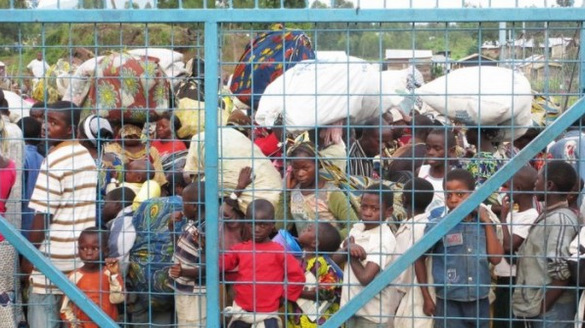
WORLD REFUGEE DAY: Salesian Missions Highlights Educational Programs Assisting Refugees around the Globe
To mark World Refugee Day 2014, Salesian Missions is proud to highlight Salesian programs around the globe that provide life-changing education, medical care and support for refugees and internally displaced people in need.
Each year, June 20 marks World Refugee Day, a day that honors the plight of millions of refugees and internally displaced people around the globe. The UNHCR, the UN Refugee Agency, noted that at the end of 2013, 51.2 million people had been forced from their homes worldwide, the highest figure of displacement since the World War II era. Almost 80 percent of those displaced are women and children.
The day, first established in 2001, is held annually and is coordinated by the UNHRC. The focus of World Refugee Day is to honor the courage, strength and determination of women, men and children forced to flee their homes under threat of persecution, conflict and violence.
Each year, World Refugee Day reflects on specific struggles faced by refugees. UNHCR noted that 2013 was an unprecedented year with conflicts in Syria, the Central African Republic and South Sudan, amongst others, that have pushed their organization and their partners to their limits. To honor those families torn apart by conflict, UNHCR is continuing their 2013 campaign theme, “1 family torn apart by war is too many.”
“We are seeing here the immense costs of not ending wars, of failing to resolve or prevent conflict,” said High Commissioner for Refugees António Guterres in a recent statement about World Refugee Day. “Peace is today dangerously in deficit. Humanitarians can help as a palliative, but political solutions are vitally needed. Without this, the alarming levels of conflict and the mass suffering that is reflected in these figures will continue.”
Globally, Salesian missionaries are assisting close to the 400,000 refugees and internally displaced persons who lives have been affected by war, persecution, famine and natural disasters such as floods, droughts and earthquakes. Below are highlights of programs for refugees developed by Salesian Missions and funded by the U.S. Department of State’s Bureau of Population, Refugees, and Migration. Salesian Missions, headquartered in New Rochelle, NY, is the U.S. Development Arm of the international Salesians of Don Bosco.
AFGHAN REFUGEE SCHOOL CHILDREN IN PAKISTAN: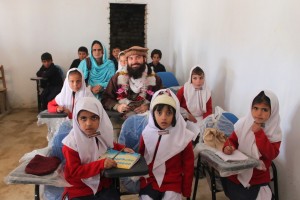
In Pakistan, a Salesian Missions program served Afghan refugee school children and their families in Quetta, the capital of the Baluchistan Province, Pakistan. The program, which began in 2012, centered on reinforcing primary education systems at six schools in highly volatile Quetta, Pakistan. The focus of the program included everything from teacher training and resource improvements for child learning, to infrastructure improvement and web-ready computer labs.
The goal of the Quetta program was to mainstream struggling Afghan refugee schools so they could become a part of the Pakistani education community and benefit from its shared institutional resources. Close to 2,200 students ages 4 to 13 benefited from Salesian Missions’ comprehensive approach to strengthening their education.
COLOMBIAN REFUGEES: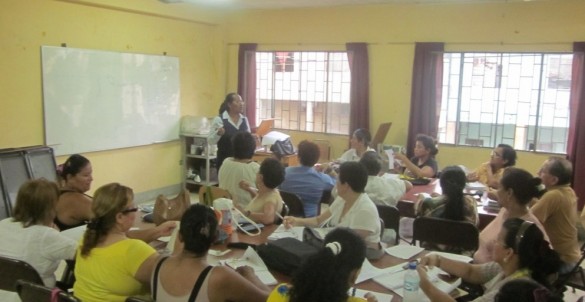
In recent years, more than 450,000 people have fled the violence of Colombia to neighboring Ecuador, Venezuela, Panama and Costa Rica. Salesian Missions’ New Beginnings initiative, which started in 2011, worked with more than 1,000 Colombian refugees in these four countries and provided vocational and human development training as well as job placement services.
Many of the Colombian refugees that came to the program had no marketable skills. They couldn’t find jobs and the lack of training made it difficult to start their own business or join with others to form cooperatives. Without jobs, it was hard for them to find stability for their families and build new lives. The New Beginnings program allowed these victims of violence and chaos to start over and build a stable, hopeful future for themselves and their families.
Through the program, each refugee student received 260 hours of technical training as well as 40 hours of human development workshops. These training programs coupled with the job placement services worked to assist Colombian refugees to start over and build successful lives in their new communities.
DR CONGO REFUGEES 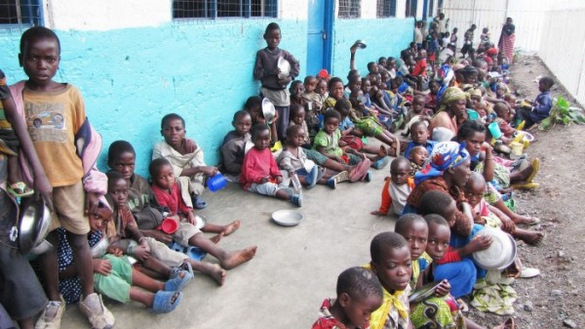
The Democratic Republic of the Congo has been plagued by intense civil war and internal conflict since the outbreak of fighting in 1998. Close to 1.5 million people have been internally displaced or have become refugees in neighboring countries after having fled the country to escape the continued violence. Salesian missionaries have been working in the Democratic Republic of the Congo for more than 100 years, ensuring that the most vulnerable children are not forgotten. At the Don Bosco Ngangi Center in Goma, located in the eastern part of the country on the Rwanda border, the missionaries run programs for more than 3,500 children and 1,500 refugees.
In addition to offering educational programs, the Don Bosco Ngangi Center has a medical clinic that consists of outpatient services and separate medical wards for general medical cases, pediatric care and cholera treatment. With two doctors and four nurses on staff, the clinic is able to treat a complex array of life threatening illnesses and injuries, although often with limited medical supplies and equipment.
The medical clinic also has a nutritional center for severe cases of pediatric starvation. Currently, this center provides intensive nutritional support to 150 severely malnourished infants, toddlers and children in the Goma area.
REFUGEES IN KENYA 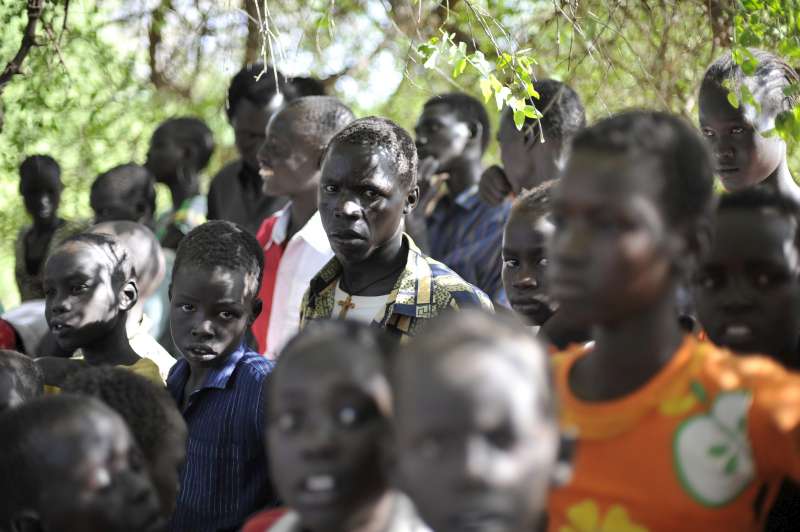
As of the end of May, Kakuma refugee camp, located in northern Kenya near the Uganda and South Sudan borders, is caring for 155,477 refugees from 20 different countries, according to UNHCR, the U.N. refugee agency. The majority of refugees at the camp, more than 44 percent, are from South Sudan and arrived after escaping conflict and violence.
Salesian missionaries at Kakuma refugee camp operate the Holy Cross Parish and the Don Bosco Vocational Training Center where 1,044 young men and women are receiving critical employment and life skills. There are many courses available and those studying welding, carpentry and bricklaying often utilize their new skills helping to build infrastructure within the camp.
Salesian missionaries at the camp also operate the Helping Children to be Children program, which gathers refugee children and leads them in games, songs and classes held outdoors on the camp grounds. Children are also offered the opportunity to draw and learn to speak English. Close to 3,000 children benefit from this Salesian program, which currently has no steady funding and is run primarily by refugee volunteers.
SRI LANKAN REFUGESS IN INDIA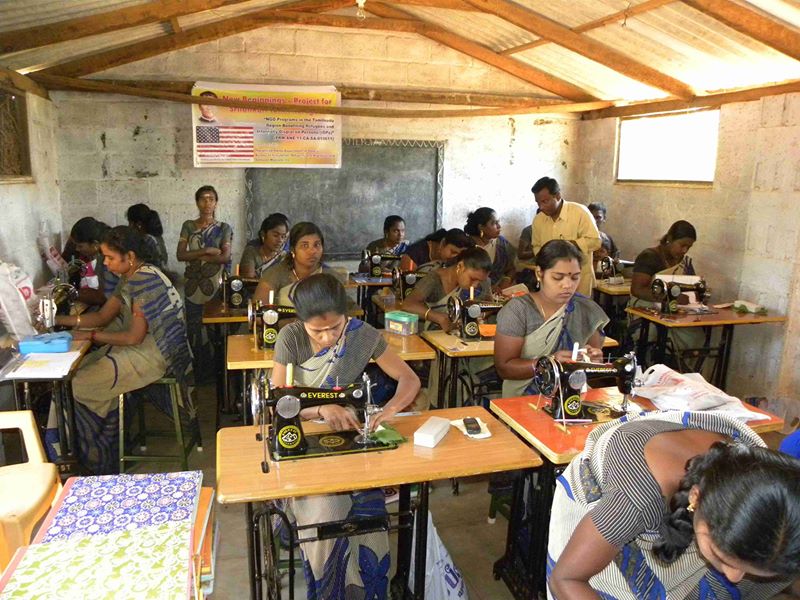
Since 1983, ethnic violence in Sri Lanka has forced tens of thousands of Sri Lankan Tamils from their homeland in search of safety and a new life in Tamil Nadu, India. According to UNHCR, the UN Refugee Agency, there are close 140,000 Sri Lankan refugees in 65 countries, with almost 70,000 in refugee camps in Tamil Nadu. Since 2010, Salesian Missions has been providing their New Beginnings program for young male and female Sri Lankan refugees who have been living in refugee camps in 15 target districts in India. The program, created by Salesian Missions and funded by the U.S. Department of State’s Bureau of Population, Refugees, and Migration, has served more than 2,500 Sri Lankan refugees.
The New Beginnings program provides market-conscious vocational and technical skills training that results in livable wage employment with the goal that trainees are better able to support themselves and their families. After training, New Beginnings graduates have at least one market-demand technical skill, as well as have received workplace readiness training to enhance positive attitudes, hygiene and personal presentation as well as the importance of team work. Results-oriented job placement assistance helps graduates transition from the classroom to work in the local labor market.
Training provided through the New Beginnings program also serves no fewer than 40 percent women and young girls in order to promote gender equality and generate opportunities for women whether they prefer to seek work at a local company or join a women’s company collective that allows them to remain home with young children while still engaged in meaningful employment.
###
